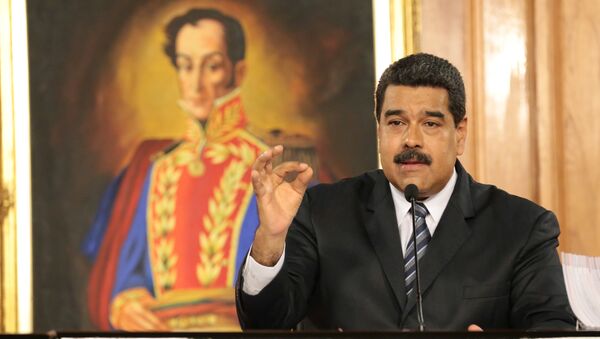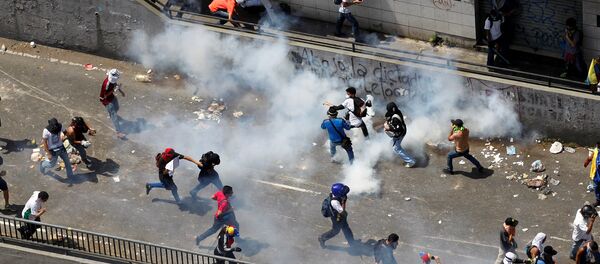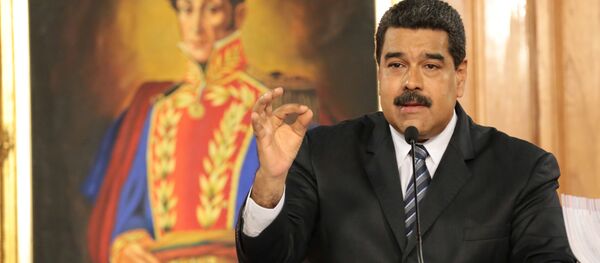The country's political tensions took a violent turn this year, as dozens have been killed in near-daily protests. In an attempt to solve the crisis, Maduro has invoked one of his constitutional powers: convening the Constituent Assembly.
Political analyst Arnold August told Radio Sputnik's Brian Becker that the Venezuelan Constitution openly states that constituent power lies in the hands of the people of Venezuela; the people can realize this power through the Constituent Assembly — a body of 500 representatives.
It has the power of "transforming the state, creating new juridical order and drawing up a new constitution," August explained.
The initiative for calling the Constituent Assembly may come from the president, from the National Assembly (if two-thirds of representatives vote in favor), from the Municipal Councils, or from just 15 percent of voters registered with the Civil and Electoral Registry. Neither the president nor the existing constituted authorities can object against or obstruct the new constitution in any way.
According to August, the situation in Venezuela has become so dire that foreign nations could use it as a pretext for either military or political intervention, putting Venezuela under the "tutelage" of foreign organizations, "especially the United States through the organization of the American states."
"The Constituent Assembly is not a question of who is going to govern; it's a question of trying to attain peace in Venezuela," August said. "That's what everybody wants, except of a small handful of agitators, who, as we know, are encouraged and even paid by the United States to create this atmosphere of chaos."
The opposition believes that the Constituent Assembly will challenge the power of the National Assembly, creating a sort of counterweight to it. This is a matter of debate, however, as the Constituent Assembly does not have any direct legislative power on levels below the Constitution. In other words, it cannot replace the National Assembly as the country's governing body.
But it does influence the plans of the opposition indirectly. For example, opposition representatives argue that the regional elections due to be held this year, and the presidential polls scheduled for December 2018, would be delayed, according to the BBC.
National Assembly leader Julio Borges called it "a scam to deceive the Venezuelan people with a mechanism that is nothing more than a tightening of the coup in Venezuela."
"It is Nicolas Maduro dissolving democracy and dissolving the republic," he said.
According to August, should the opposition refuse to participate in the Constituent Assembly and engage in more violence, it will push the Bolivarian Revolution, the governing political movement in Venezuela, further down the path of socialism, which could include taking either the property or the privileges away from the privileged few in Venezuela.
"This is quite possible. I thinks it's a good move by the Bolivarian Revolution; they are trying to have a scenario of peace and dialogue, but if it doesn't work out, they are also taking steps in order to bring the revolution further rather than having Venezuela fall into the hands of foreign powers, who look to take advantage of the situation, to bring Venezuela in the sphere of US influence," August said.






